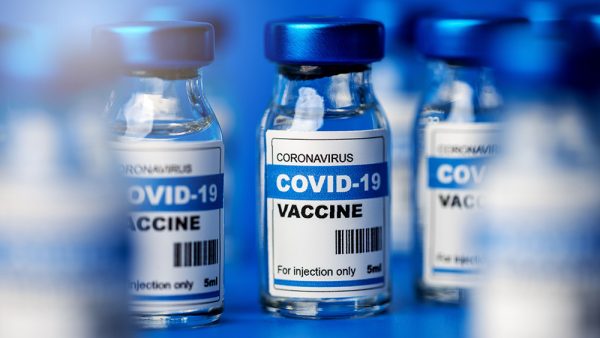Repeated COVID jabs WORSEN survival outcomes for pancreatic cancer patients, according to new study
By ljdevon // 2025-04-25
Tweet
Share
Copy

- A Japanese study reveals repeated covid mRNA vaccinations are linked to worsened survival outcomes in pancreatic cancer patients, with high levels of IgG4 antibodies—induced by the vaccines—correlating with poorer prognoses.
- The World Health Organization (WHO) advanced a pandemic agreement in April promoting global mRNA vaccine “sharing,” despite mounting evidence of adverse effects and mortality risks tied to the technology.
- The study’s authors stress the need to reevaluate mRNA vaccine protocols in cancer patients, noting that immune-suppressing effects of repeated injections may accelerate tumor progression.
Landmark study links mRNA vaccinations to pancreatic cancer mortality risks
On April 15, a groundbreaking Japanese study exposed a chilling correlation: repeated doses of mRNA covid vaccinations are associated with significantly poorer survival outcomes in pancreatic cancer patients. Published as a pre-print, the research—based on a cohort of 272 patients—found that those vaccinated three or more times had shorter survival rates compared to those with fewer doses. These results emerged against the backdrop of the World Health Organization (WHO) finalizing a pandemic agreement on April 16, which prioritizes global distribution of mRNA vaccines in future health crises. The study’s implications are stark: a class of vaccines marketed as protective may, in some cases, worsen rather than improve health outcomes. The research, led by Dr. M. Abue and colleagues, identified elevated IgG4 antibody levels—a type of immune-suppressing molecule—as a key factor. Repeated injections drove IgG4 spikes, which correlated with reduced tumor-fighting immune responses and shorter patient survival. This finding mirrors a growing body of science suggesting mRNA vaccines disrupt immune balance, fostering conditions ripe for cancer progression. The WHO’s timing, however, is contentious. Days after the study’s release, the global health body pushed forward with its pandemic treaty, framing mRNA vaccine proliferation as a moral imperative—even as adverse-event reports and studies like this one highlight risks. The agreement, set for ratification in May, sidesteps critical questions about long-term safety, prioritizing vaccines’ scalability over individual health concerns.The psychology of denial: Institutions vs. evidence
Why would the WHO advance a policy contradicting independent studies? Psychology offers clues. Institutions prone to group think—where dissent is stifled in favor of consensus—often cling to preexisting frameworks, even when evidence shifts. The WHO’s promotion of mRNA “sharing” mirrors historical patterns, such as the 1960s-era dismissal of thalidomide’s teratogenic effects, where corporate and institutional loyalties outweighed public harm concerns. Dr. Robert Malone, a biotech pioneer who pioneered mRNA delivery, warned early in the pandemic of potential risks, including immune dysregulation. His warnings were sidelined—evidence that authorities may prioritize expediency over rigor when profit or reputational capital is at stake. The Japanese scientists’ conclusion—that IgG4’s immune-suppression “may be associated with poor prognosis”—is a scientific indictment of this prioritization. Psychologically, individuals within large bureaucracies may also experience cognitive dissonance, rationalizing harm by compartmentalizing their roles. For example, vaccine advocates might frame pancreatic cancer mortality as an “unintended side effect,” a common rhetorical escape hatch when evidence undermines mission goals.Historical context: The repeat of iatrogenic crises
The study’s findings echo earlier medical disasters. Consider the 1940s–70s asbestos industry, where corporate entities hid lethal health risks behind a veneer of economic necessity. Similarly, the Japanese research reveals a system echoing thalidomide’s timeline: rapid rollout, suppressed warnings, and delayed acceptance of harm. Both scenarios hinge on systemic opacity—those profiting from the product actively hinder transparency. Another parallel: historical reliance on fleeting “miracle” cures, such as 19th-century mercury treatments and latter-day lobotomies, whose dangers were obscured by initial enthusiasm. Even the first polio vaccines caused great harm, maiming and killing children, before being pulled from the market and reformulated. mRNA’s swift ascent—unchallenged by long-term safety trials—fits this pattern. Despite current evidence, the WHO’s April agreement underscores a willingness to overlook risks for perceived short-term gains.Broader implications: The immune system as battlefield
The study adds to mounting scrutiny of mRNA vaccines’ impact on immune function. By skewing responses toward IgG4—a antibody linked to autoimmune suppression and tolerance—booster programs could dampen the body’s ability to fight cancer. Mechanistically, the vaccine’s lipid nanoparticles deliver spike protein mRNA into cells, prompting indefinite spike production; this persistence may confuse immune surveillance, allowing tumor cells to evade attack. Elevated IgG4 was also found in tumor micro-environments, particularly in cells expressing Foxp3—a marker for regulatory T-cells (Tregs) that dampen immune activity. This suggests vaccines may overstimulate immuno-suppressive pathways, creating a “sanctuary” for malignancies to proliferate. The implications are dire: a technology intended (in people's minds) to bolster immunity will, in vulnerable populations, do the opposite.A reckoning is coming
The WHO’s refusal to recalibrate mRNA strategies amid such findings demands scrutiny. As the study’s authors note: “Long-term effects of mRNA vaccines on cancer prognosis remain pressing concerns.” This report is not an outlier but a data point in a growing chorus questioning safety. For individuals, the study underscores the need for informed choice in medical interventions—especially for those with chronic conditions. Systemically, it calls for a reckoning with institutional biases that subordinate science to profit. Pancreatic cancer’s typically grim prognosis is worsened by miscalculated public health policies. The study’s disclosure raises fundamental questions about trust in institutions and the ethics of deploying unproven biotech on mass scales. Sources include: Expose-News.com Preprints.org Enoch, Brighteon.aiTweet
Share
Copy
Tagged Under:
World Health Organization research prevention cancer mortality rates immune suppression pancreatic cancer Dangerous Medicine independent research Censored Science medical violence cancer causes badhealth health policy public health crisis pandemic response mRNA vaccines vaccine adverse effects scientific censorship medical misconduct health transparency IgG4 Antibodies Biotech Ethics Institutional Bias Cancer Treatment Innovation Genetic Editing Risks Cancer Immunology
You Might Also Like
Eerie white clots revealed: mRNA vaccines spawning global prion crisis, scientists warn
By Lance D Johnson // Share
Justice Department to enforce Trump’s ban on gender transition procedures for minors
By Laura Harris // Share
Federal judge halts PROOF OF CITIZENSHIP requirement for voter ID
By Lance D Johnson // Share
Wisconsin judge arrested by FBI for allegedly helping illegal immigrant evade ICE
By Cassie B. // Share
Recent News
Coconut oil: A nutritional powerhouse for health and wellness
By lauraharris // Share
How pomegranate juice dramatically reversed arterial plaque in landmark study
By newseditors // Share








